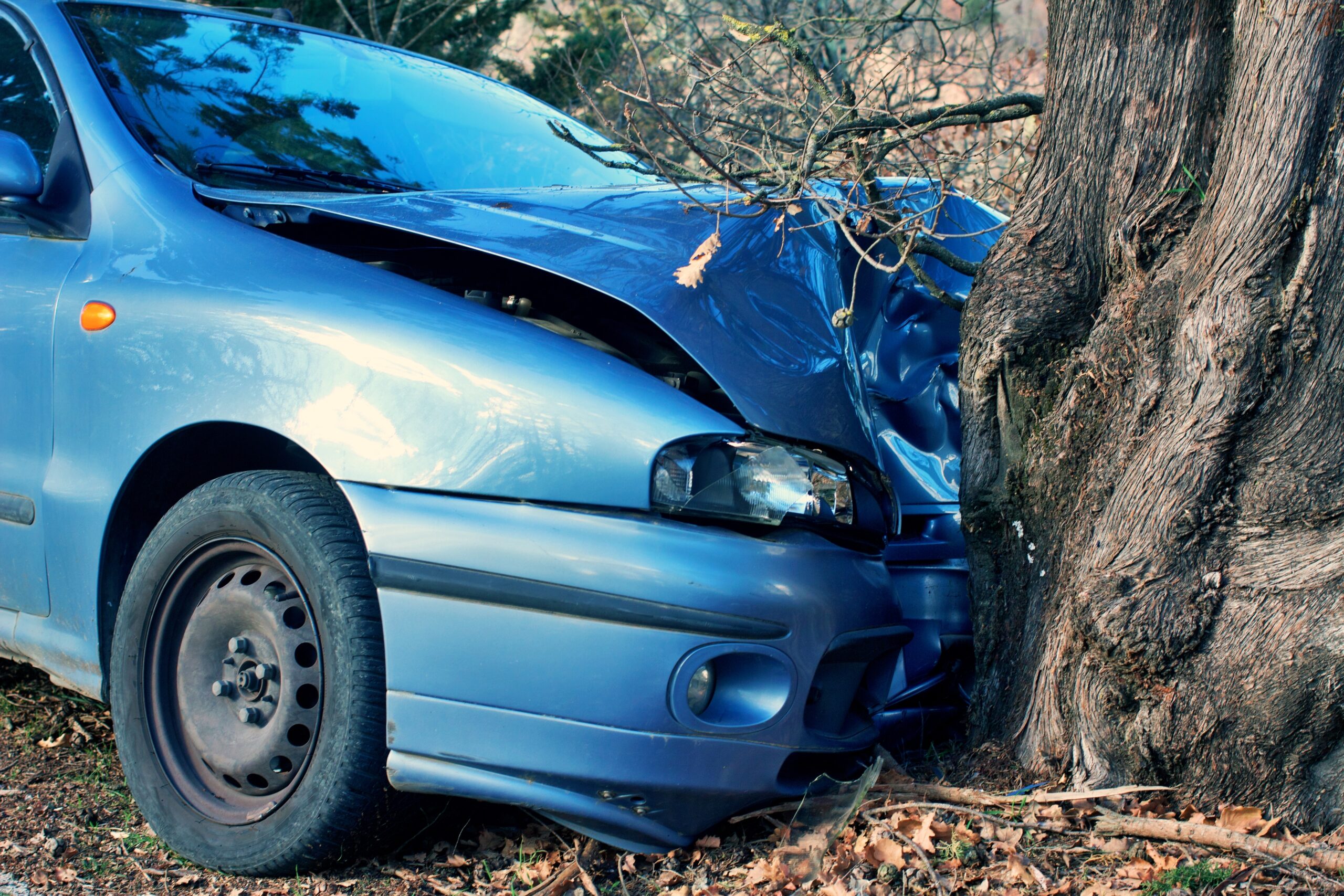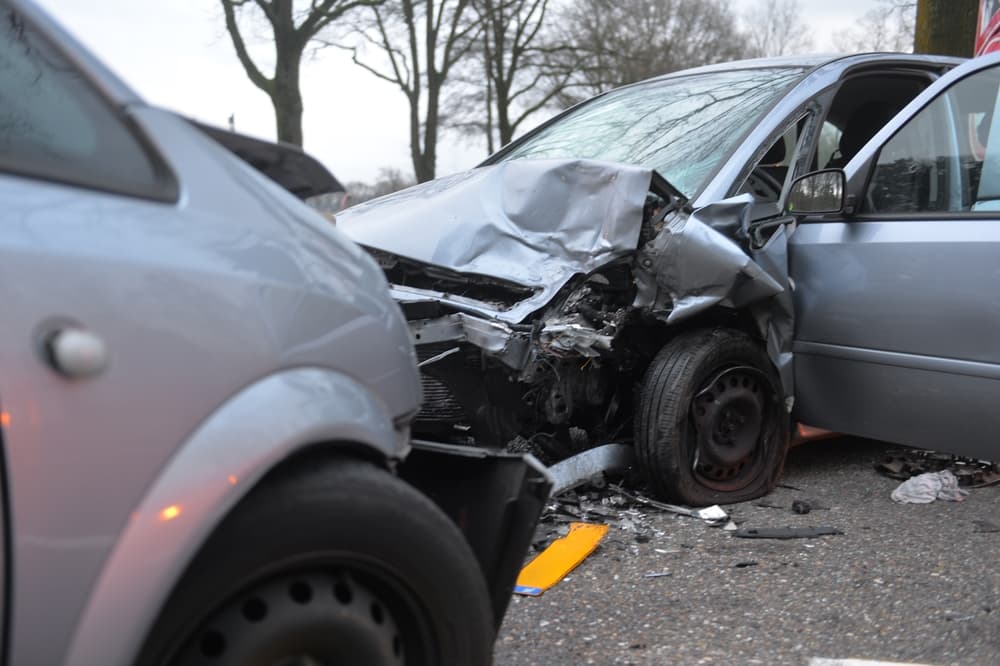Rideshare services like Uber and Lyft may offer convenience, but a collision involving one can cause more than short-term chaos. Beneath the visible damage lies a ripple effect of long-term costs—ones that don’t always come with a price tag at first glance.
For injured passengers or bystanders, the aftermath doesn’t end when the ride does. Long after the ambulances clear and the reports get filed, physical, emotional, and financial burdens continue stacking up.
A crash in a rideshare vehicle can trigger years of consequences. Some are obvious. Others creep in slowly, eroding your ability to work, sleep, or even sit comfortably. If you’ve suffered a severe injury in a rideshare wreck, your future may look far different than the one you imagined. A San Jose rideshare accident attorney will work to help make the future as economically secure as possible.
Medical Expenses That Outlast Insurance Payments

Hospital bills aren’t the only financial hurdle. Some injuries need years of follow-up care, including repeat surgeries, pain management programs, or specialist consultations. Even when insurance covers the first wave of emergency treatment, it rarely accounts for long-term rehabilitation.
Your rideshare accident lawyer will calculate those future needs, not just the costs you’ve already seen. They’ll consider recurring injections, home health aides, durable medical equipment, or therapy that stretches into the foreseeable future. Every time you refill a prescription or return to physical therapy, those bills become another chapter in the story of what the crash truly cost.
Beyond procedures and appointments, there’s a logistical challenge, too. Frequent follow-ups mean time away from work, travel costs, and reshuffling your schedule around your injury. These disruptions take a toll, both financially and mentally, even if you're technically “covered.”
Lost Earning Potential and Career Setbacks
A long recovery doesn’t always end with a full return to work. For many rideshare accident victims, their injury cuts into job performance or ends their career altogether. Maybe lifting is no longer an option. Maybe standing for long periods sends a jolt through your spine. Or maybe chronic pain makes concentration impossible.
If your injuries force you to change fields – or retire early – you’re not just losing income. You’re losing future promotions, bonuses, contributions to retirement accounts, and more. A sharp attorney will push to have those losses recognized. They won’t just look at what your paycheck was. They will examine what it should have been.
It’s not just manual laborers or drivers who feel this impact. A rideshare crash can sideline professionals, educators, and creatives. Pain, reduced mobility, and cognitive struggles limit how you do your job, sometimes whether you can do it at all.
Hidden Emotional Costs That Compound Over Time
Psychological injuries rarely get the attention they deserve, but their impact is often the most enduring. Anxiety behind the wheel, fear of riding in cars, or intrusive memories tied to the crash are common among survivors. These symptoms can shape daily life in profound ways.
Sleep disorders, panic attacks, or post-traumatic stress can emerge weeks or months after the crash. For some, the emotional fallout becomes the most disabling part of the injury. Yet insurance companies often dismiss these costs or treat them as short-term hurdles.
Your rideshare accident attorney will press for documentation, mental health assessments, and witness statements that put your emotional well-being into focus. Mental health struggles aren’t minor complications. They’re part of the injury, and they deserve attention.
Mobility Limitations and Home Modifications
Not all injuries are dramatic in the moment. Some alter your lifestyle in subtle but frustrating ways. A damaged knee might mean every staircase is now a battle. A wrist injury might make dressing yourself a struggle. When these limitations become permanent or semi-permanent, you’ll likely need to adjust your home, car, or daily habits.
If you need a wheelchair ramp, shower modifications, or even furniture replacements to make your space functional, those changes carry a price. Transportation is also affected if driving is no longer safe. A strong lawyer will fight to include those future expenses in any claim or lawsuit. It’s not about luxury – it’s about preserving your independence.
The same applies to caretaking needs. In-home assistance, meal prep, child care, and daily living support might become permanent fixtures in your life. They’re not optional, and they’re not cheap. A skilled attorney will argue that you shouldn’t have to bear that burden alone.
Social Disconnection and Loss of Enjoyment
Some costs don’t appear on a financial ledger but hit just as hard. After a serious rideshare injury, many people find their hobbies or social lives shrinking.
Loss of enjoyment is a very real injury in the eyes of the law, even if insurers like to pretend it’s an exaggeration. Your rideshare accident lawyer will recognize how important your hobbies and relationships are. They’ll collect testimony from friends and family and gather documentation showing the ripple effects the crash caused.
Social withdrawal and isolation are often slow to appear. Over time, they become as restrictive as any physical limitation. They affect relationships, mental health, and self-esteem. And they deserve a voice in any legal action you pursue.
Impact on Dependents and Family Members
An injury isn’t isolated to one person. Families often carry the load, especially when caregiving becomes necessary. Your partner may need to take unpaid leave. Your kids might witness your pain or anxiety. Sometimes, it’s your elderly parent who has to help instead of being cared for themselves.
This disruption takes a toll on family structure. The strain on relationships, finances, and household responsibilities turns one person’s injury into a shared crisis. A sharp attorney will ensure the broader effects aren’t lost in the paperwork.
Some families also suffer secondary losses. Maybe a child misses after-school programs because you can’t drive anymore. Maybe a spouse misses job opportunities due to their role as a caregiver. These losses matter – even if they don’t show up on a medical chart. Your rideshare accident attorney will include them in the broader picture of harm.
Insurance Limitations and Delayed Compensation
Even when insurance pays, it often arrives late and in pieces. Companies stall, deflect, and undervalue claims, hoping you’ll accept less just to move forward. Meanwhile, the bills keep coming.
That’s where your lawyer will apply pressure. They’ll build a detailed, evidence-backed case for your long-term costs. They’ll consult life care planners, economic analysts, or vocational experts to estimate how your injury reshapes your future. Their focus won’t be on short-term patchwork. It’ll be on building a claim that reflects the years ahead.
Insurers might try to settle quickly, especially if they sense that your injuries will worsen with time. An attorney won’t let you get boxed into an agreement that ignores your future needs. They’ll hold the line, knowing that short money now won’t cover chronic pain later.
Gaps in Health Coverage and Private Pay Issues

Your health insurance might cover part of your treatment, but most plans include significant co-pays, uncovered services, or arbitrary visit limits. Once you reach those caps, you’re in private pay territory. Rehab, therapy, medication – all of it comes out of pocket unless a settlement or court judgment provides the funds.
A rideshare accident lawyer will anticipate these gaps. They’ll review your health plan, anticipate the denial points, and build your claim around those financial blind spots. You shouldn’t have to gamble with your care because of policy limitations or deductibles.
When certain therapies aren’t covered or are only partially reimbursed, you might delay or skip critical treatments. That delay can cause long-term setbacks that wouldn’t have happened with uninterrupted care. A thoughtful attorney will factor that into your compensation claim. You didn’t choose to get hurt – your resources shouldn’t decide how well you recover.
The Erosion of Future Security
Rideshare collisions often leave financial damage far beyond medical bills and initial repairs. Even when you're cleared to return to work, your bank account tells a different story. The emergency fund you spent years building now pays for groceries. The retirement plan you carefully nurtured starts to vanish under the weight of prescription costs, therapy sessions, and daily expenses you never anticipated.
Suddenly, your financial goals don't just pause – they fracture. College savings accounts shrink or disappear completely. Vacation plans are canceled indefinitely. Even the idea of upgrading your home or moving to a better school district fades into the background. Your long-term financial blueprint – carefully laid out and responsibly maintained – now feels like a relic from a past life.
When Short-Term Fixes Create Long-Term Setbacks
Temporary solutions might seem manageable at first. You move money around, dip into savings, and delay non-essential expenses. But these patches create new vulnerabilities. Each dollar used to pay down post-accident costs is no longer compounding interest or growing into something greater. The long-term impact compounds quietly.
Your rideshare accident attorney will recognize this chain reaction. They’ll show how short-term measures, like draining your 401(k) or borrowing from your home equity, weren’t choices – they were consequences. A claim that doesn’t include these losses tells only half the story. Your lawyer will dig into what you’ve had to sacrifice, not just to survive but to preserve some version of financial normalcy.
The Disappearing Safety Net
Most people don’t notice their financial safety net until it’s gone. Emergency savings, cushion income, and backup budgets disappear quicker than expected when injuries prevent you from working at full capacity. Even if your salary returns, it rarely arrives with the same momentum.
You might skip preventive care or ignore small repairs around the house just to keep up. These changes aren’t dramatic, but they’re persistent. They signal a new reality where caution and compromise have replaced comfort and confidence.
That’s why an experienced rideshare accident lawyer won’t stop at tallying your current losses. They’ll work to project what your financial life should have looked like if the crash had never happened. That contrast tells the real story of how deeply your future has been affected.
When the Injury Isn’t “Finished” Healing
Physical recovery doesn’t always follow a straight line. Some injuries evolve, bringing new complications just when you think you’re improving. What begins as a manageable back injury can become spinal deterioration. Nerve pain might flare up into a condition that disrupts every part of your day.
A rideshare accident attorney will approach these injuries with a long-term focus. They won’t accept a snapshot of your condition in the moment. Instead, they’ll ask: What will this look like in five years? Ten? What medical interventions might become necessary, and what quality of life sacrifices will those bring?
Your lawyer will speak with medical professionals who can explain what similar injuries typically lead to. They’ll present those facts with clarity and credibility, forcing insurance companies to take your ongoing needs seriously.
Chronic Pain and the Costs You Don’t See Coming

When an injury lingers, the costs do more than add up – they multiply. Ongoing care often means more than medical visits. It includes adaptive equipment, home modifications, and help with daily living activities. Maybe your bathroom needs remodeling for accessibility, your car needs custom controls, or you need help getting dressed every morning.
Your rideshare accident lawyer will factor in those adjustments. They’ll gather evidence that shows why your condition requires these accommodations, not as luxuries but as tools to preserve independence. These changes aren’t optional. They’re essential to maintaining some version of a fulfilling life.
Even small recurring expenses, like over-the-counter pain relief or heating pads, deserve attention. When a cost becomes part of your daily reality, it belongs in your legal claim. Your attorney won’t let insurers dismiss the cumulative burden of living with a chronic condition.
How a Rideshare Accident Lawyer Will Show the Full Picture of Your Losses
When you bring your case to a lawyer who understands these dynamics, they won’t just seek compensation for the obvious. They’ll build your case around every branch of your financial life – past, present, and projected. Your claim becomes a living document of everything the accident affected.
The only way to tell the truth about what a rideshare injury costs is not in medical terms or temporary disruptions but in the full weight of what was taken. Let a San Jose personal injury attorney recoup those costs and move on with your life. A lawyer is ready to provide you with a free consultation.


